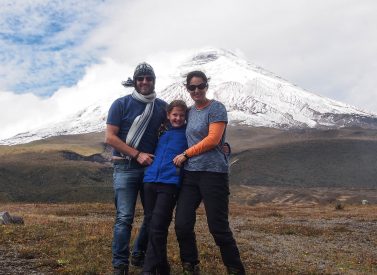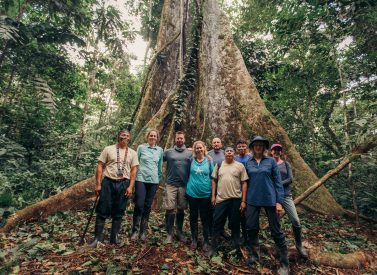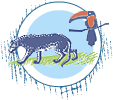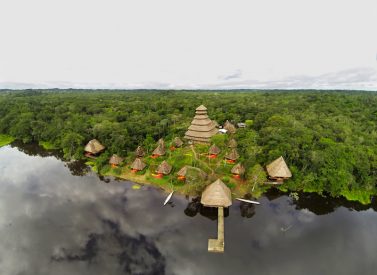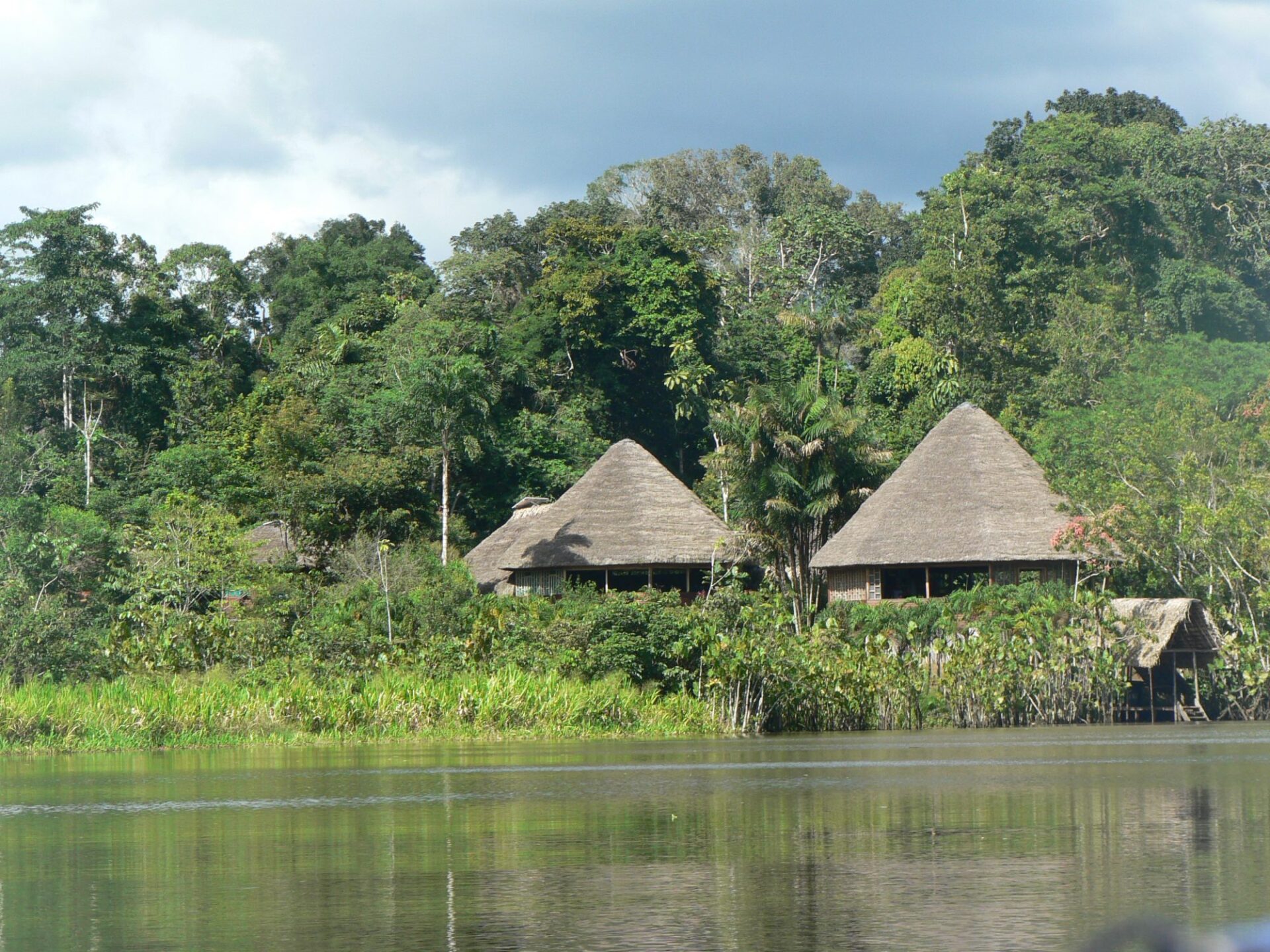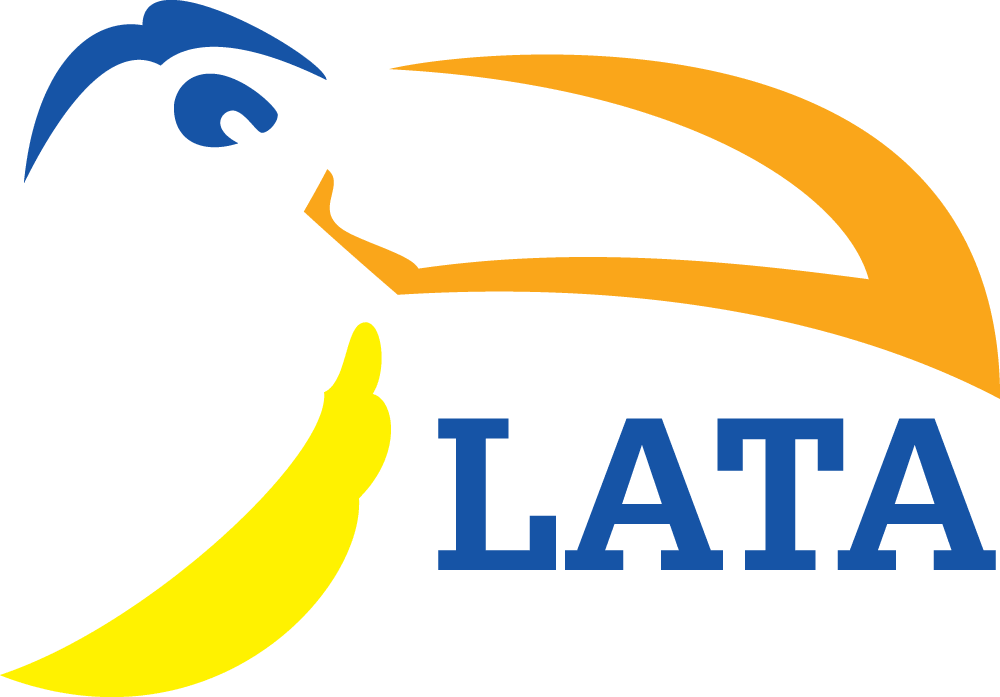
Mashpi Lodge: Cloud Forest Hotel
Sustainable luxury cloud forest hotel: Mashpi Lodge
Ecuador cloud forest’s most exclusive hotel immerses you in nature while you luxuriate in the wonderful comforts at Mashpi Lodge.
Just a few hours from Quito, Mashpi Lodge sits in the 3,000-acre Mashpi Reserve, and forms part of one of the world’s most important biodiversity regions.
Explore lush, misty cloud forests bursting with wildlife from dawn to dusk, accompanied by expert naturalist guides and biologists. Trails criss-cross the Andean landscapes, revealing a diversity in wildlife unrivalled in the area.
Choose your own adventure in this magical place. Watch butterflies hatch from cocoons, fly above the forest canopy in cable cars, or pedal through the trees on the exclusive Sky Bike. Or harmonise with Mother Earth in the Wellness Centre, with its spa treatments, massages, and hot tub.
More about Mashpi Lodge
Mashpi Lodge is in one of the world’s biodiversity hotspots. The Choco bioregion stretches from Panama through Ecuador to the border with Peru.
Ecuador’s section, the Andean Choco, is part of the world-famous Tumbes-Choco-Darien biodiversity hotspot. It covers 125,000 hectares with diverse microclimates across its undulating topography, offering a unique richness in flora and fauna.
About Mashpi Reserve and Lodge
Mashpi Lodge came to life in 2001 when a group of environmentalists bought 3,000 acres of land in the Choco bioregion. Once farmed and logged, the group set out to protect an area home to more than 400 species of birds, 150 butterfly species, 120 species of amphibians and reptiles, and 100 varieties of trees.
Mashpi Lodge aims to mix the best-in-class hotel service in an artistic, natural environment. It succeeds thanks to luxurious rooms and tasteful communal spaces that blend in and play with the surroundings.
The contemporary and sustainable lodge sits at the beating heart of the Mashpi Reserve, 950m/3,100ft above sea level, among the lower montane tropical rainforest and cloud forests. Panoramic views unfold from almost all areas, fusing you with nature during your stay.
Connect with nature at Mashpi
Connect with nature on the yoga deck, unwind in the spa, or enjoy a meditation session among the cloud forest sounds. Awaken your senses in the lodge’s pristine swimming area next to a refreshing natural waterfall, one of several cascades surrounding Mashpi Lodge, where you can re-energise your spirit.
Your wellness is cared for with high-end gastronomy, exotic cocktails, and the plush Samay Centre and Spa. Learn more about the environment in the expedition room. There’s an indoor and outdoor bar lounge, coffee bar, well-stocked library, gift shop, and viewing platform. There are even some computers for those that may need access.
Mashpi Lodge is also a member of the National Geographic Unique Lodges of the World programme; no need to say more.
Birdwatching
Mashpi Lodge is a birdwatching paradise, with explosively coloured birds sighted among the lush, tropical greenery. Look for the azure blue, deep vermillion, and forest green flashes of birds among the kaleidoscope of butterflies, frogs, and insects.
Some 35 of the 400 species at Mashpi Lodge are endemic, and more than 30 species of hummingbirds have been identified in the area. A highlight for many is the Andean Cock-of-the-Rock lek.
Highlights at Mashpi Lodge
Mashpi’s eight-storey high observation tower (26m/85ft) gives a view over the cloud forest canopy like no other. Watch nature in all its beauty from above the jungle floor.
A life centre offers a journey of learning and discovery for children and adults alike. There, resident scientists talk you through the area’s wildlife while inviting you to witness one of nature’s most striking wonders; the metamorphosis of butterflies.
The dragonfly gondola offers an 80-minute ride through and above the cloud forest canopy along a 1.2 mile/2km route. Alternatively, take the sky bike, pedalling 200m/650ft through the cloud forest canopy, over the jungle, rivers, and wildlife.
A hummingbird garden viewpoint allows guests to observe up to 19 of the 32 species identified at Mashpi. Marvel at the magical hovering birds while keeping your eyes peeled for the toucans and squirrels that share the garden.
Expert guides to help
Local and naturalist guides help spot wildlife on the numerous trails that follow the undulating features of the Mashpi zone. They range from short, 20-minute walks to those up to and over three hours, often combined with other activities. Evocative names include the Howler Monkey, Healing Water, Capuchin Monkey, and Walking Palm trails. You can also head out on night walks and experience the jungle from an entirely new perspective.
Kids love the laboratory where the experiments are designed to make them fall in love with the natural world. Research and conservation projects—new species are often being discovered—amplify this connection.
Take it easy among the birds and breeze on the outdoor yoga deck, soft mats provided. Or try Samay, which means ‘soul’ in Kichwa, a Wellness Centre that offers inner harmony for the mind, body, and soul. Massages, beauty treatments, and a hot tub await.
Trip Highlights
Print Share Download as PDF-
Sustainable and luxurious lodge in the heart of Ecuador's cloud and rainforest.
-
Choose your own activities, including cable car rides, flying bikes, trails, and swimming in waterfalls.
-
Connect with nature with massages and spa treatments at Mashpi's Wellness Centre.
-
Expert guides and biologists bring the area's biodiversity to life.
Bellavista was amazing, and the guys there arranged some really fun additional activities around Mindo on the day we went zip lining (butterfly farm, orchid farm, chocolate factory).
M. Williamson, Bellavista
Full Itinerary
Day 1: Transfer from Quito to Mashpi Lodge (L,D)
The adventure begins at 08.30 a.m. with a pick-up from one of four hotels in Quito (Swissôtel, JW Marriott, Hilton and Casa Gangotena).
It takes around three hours to leave the high altitudes of Quito and drive through the hilly surrounds to the Mashpi Reserve, located at about 1,000m (3,330ft). The alternating terrains make the area one of the world’s most significant biodiversity hotspots.
We’ll pass the dry Pomasqui valley before heading into the misty cloud forest and magical world of Mashpi.
Note: Clients not staying at one of the four hotels simply make their way to the closest one for pick-up.
Arrival at the Lodge
On arrival, we enjoy lunch and a briefing before enjoying some free time to relax after the journey. Check-in for the rooms is after 2 p.m.
The rest gives us energy for the afternoon’s activities, which you can choose with the help of the guides and depending on the weather. We usually start with a guided walk along an exploratory trail so you can familiarise yourself with the Chocó region’s forests.
Keep an eye out for wildlife at all times. You never know what you’ll see.
We return to the lodge for dinner. There are evening lectures to enjoy, given by a naturalist guide or the resident biologist, about the region, ongoing projects, and wildlife.
Day 2: Explore Mashpi Reserve (B,L,D)
Early starts are recommended at Mashpi. Dawn is busy with many creatures searching for food or somewhere to rest. Those up early can head to the hotel terrace at 06.30 a.m., where a guide will help spot wildlife.
Breakfast service usually starts around 07.30 a.m., giving us energy for the day ahead. Most people fit in between six and eight experiences in a three-day stay, or more if staying longer, plus wellness experiences if desired.
Trails
There is life at every step in the forests around Mashpi, a place to revive the senses.
Naturalist and local guides will explain the myriad plants, insects, and animals as you hike.
Two of the lodge’s main trails, which are rarely flat, are the Howler Monkey and Magnolia Trails. The steep angles help with wildlife spotting. Other popular walks include the vigorous uphill hike (1 hour) to the San Vicente waterfall or the Oxibelis trail. We often combine activities like the sky bike with a walking trail.
The Copal Waterfall trail is a two-hour-long hike with a spectacular 50m waterfall to finish. Those who want to bathe in waterfalls will enjoy water temperatures between 18 and 20°C (64 and 68 °F).
Activities end by returning to the lodge to enjoy a refreshing natural juice and fresh towels to dry off. We’ve got night trails to reveal even more of the forest’s secrets plus daily evening night briefings from our guides or resident biologists.
Life Centre
The Life Centre is a place for learning and discovery and somewhere to disconnect, enjoy the views, or relax. You may spot wildlife on the short walk from the lodge to the Life Centre.
The butterfly reproduction programme is a highlight, as are the dozens of species of orchids, bromeliads and passion flowers around the centre. There are also medicinal plants and a variety of typical forest plants from tobacco to cacao, which many animals come to feed upon.
Observation Tower
The Observation Tower (26m/85ft) offers a bird’s-eye view and panoramas surrounding the lodge. Wildlife observation is best at dawn or dusk. There are 162 steps to climb to get close to toucans, woodpeckers, tanagers, parrots, and raptors.
Dragonfly
The dragonfly canopy ride glides gently through the air over 1.25miles/2km, showing the immensity of the Mashpi Reserve. The 40-minute route combines with other trails or can be done in an out-and-back fashion.
Sky Bike
The sky bike requires one of its two occupants to pedal and push the bike through the forest canopy. The 200m (655 feet) route crosses a river and gets you up close to nature. Children must be 1m tall and accompanied by adults.
Hummingbird Viewpoint
Feeders attract many of the 32 hummingbird species in Mashpi to this viewpoint. There is a shelter with seating and a natural viewpoint and breathtaking views.
Wellness Centre
A massage, yoga, spa treatments, or the outdoor hot tub—the Wellness Centre will replenish your reserves.
Day 3: Wildlife activities, transfer to Quito (B,L)
You may be up at 06.30 to watch wildlife or choose another short adventure. Check-out is at 11 a.m., so your guide can recommend activities.
The transfer leaves Mashpi Lodge at 11.30 a.m.. It includes a complimentary box lunch to enjoy during our drive back to Quito. Drop-off is at one of the four pick-up hotels ((Swissôtel, JW Marriott, Hilton and Casa Gangotena).
Prices From $1,146 / £932 per person
What's Included?
Shared transfer in and out of Quito (Pickup/dropoff points: Swissôtel, JW Marriott, Hilton and Casa Gangotena), meals as per itinerary, box lunch on last day return to Quito, guided activities and excursions within the reserve (walks, birdwatching, nature encounters, sky bike, life centre, waterfalls and hummingbird garden, WiFi, unlimited soft drinks, use of rain ponchos and rubber boots, clothing dryers service.
What's Not Included?
Dragonfly cable car ride, spa treatments, alcoholic drinks, tips (can be left in cash or via credit card), personal expenses, laundry service, insurance, international or domestic flights, Quito hotels, and personal items.
Accommodation
About Mashpi Lodge
Mashpi Lodge aims to mix the best-in-class hotel service in an artistic, natural environment. It succeeds thanks to luxurious rooms and tasteful communal spaces that blend in and play with the surroundings.
The contemporary and sustainable lodge sits at the beating heart of the Mashpi Reserve, 950m/3,100ft above sea level, among the lower montane tropical rainforest and cloud forests. Panoramic views unfold from almost all areas, fusing you with nature during your stay.
Your wellness is cared for with high-end gastronomy, exotic cocktails, and the plush Samay Centre and Spa. Learn more about the environment in the expedition room. There’s an indoor and outdoor bar lounge, coffee bar, well-stocked library, gift shop, and viewing platform. There are even some computers for those that may need access.
Mashpi Lodge is also a member of the National Geographic Unique Lodges of the World programme; no need to say more.
Mashpi Lodge Rooms
Mashpi Lodge rooms, dispersed over three floors, immerse you in forest life while ensuring its wildlife remains safely in the canopy. Enjoy stunning mountain views from floor-to-ceiling and wall-to-wall panoramic glass windows, some on two sides, with the forest just a few feet away.
This crystal capsule makes you feel like you are in the forest from the comfort of your bed. Open the windows and let the forests’ calls wash over you.
There are 24 rooms at Mashpi, with room for up to 50 guests.vCheck-in is around 2 p.m., and check-out is at 11 a.m.
All rooms feature:
- Hair dryer
- iPod charging station
- Telephone (international direct dial)
- Air conditioning and heating
- Safe/lockbox inside the room
- Low-bandwidth WiFi available throughout the lodge
- Electricity: 110V (60Hz) Type A & B plugs/ sockets.
Yaku Suites (Three available)
- 46 m2/495 ft2
- King-size beds
- Interconnectable
- Bathtubs and showers
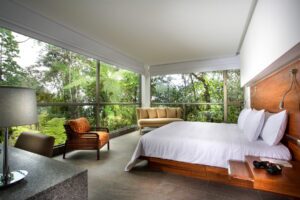
Wayra Rooms (20 available)
- 34 m2 / 366 ft2
- 13 Wayras have two full-size beds per room
- Seven Wayras have one king-sized bed
- Showers only
- Three Wayra rooms interconnect: a king-sized bedroom can connect to one with two full-size beds.
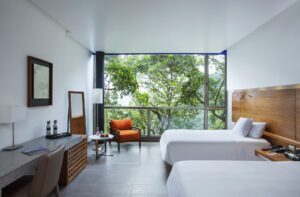
Tour Staff
Local, bilingual (English/Spanish) guides will take you around the trails, spotting wildlife and explaining various aspects of the forest’s flora and fauna.
Many of the local staff are from the surrounding Mashpi Reserve.
Community
Mashpi Lodge has worked hand-in-hand with Mashpi Reserve’s communities since the project’s inception in 2001. Indeed, much of the food you’ll enjoy comes from the locals’ land.
Community members and lodge employees also follow a programme that makes them company shareholders and offers work and training possibilities.
Meals
Mashpi Lodge is happy to cater for vegetarian / vegan / gluten-free diets – please contact us for more on any dietary requirements.
Mashpi Lodge Restaurant
Synchronise a top-end gastronomic experience with the surrounding natural beauty with Mashpi Lodge’s beautiful, cloud forest-wrapped restaurant.
Chefs use Ecuador’s myriad ingredients, from the coast to the Andes to the Amazon, to create unique local flavours and tempting international dishes. Breakfast and lunch are buffet while night dining is à la carte. Don’t forget to try cocktails inspired by Mashpi’s verdant environment.
Any bar bills can be paid in USD cash or by credit card.
Approximate meal times:
Breakfast is served at 07.30 (buffet style)
Lunch is served at 13.00 (buffet style)
Dinner is served at 19.00 (A la carte)
Activity Level
This trip is open to anyone who has a good level of fitness and enjoys being in the outdoors, with a positive attitude who wants to walk in a stunning cloud forest.
Hikes are from 15 minutes to 2-3 hours long and involve some ups and downs, but there are plenty of stops to see wildlife, take photos etc.
The itinerary is flexible, and you can relax at the lodge birdwatching, enjoying the Wellness Centre, having a massage, or looking for wildlife from the hotel terrace. The trip is open to all, including children.
Practical Information
Introduction to Ecuador
Ecuador is the second smallest South American country, and one of the most varied.
It comprises three main geographical areas: the coast, highlands and Amazon plus is home to the Galapagos Islands.
Because of its relatively compact size, it makes a great holiday destination as you can move from highlight to highlight fairly easily and rapidly.
Geography of Ecuador
Landscapes vary from the drier south to the more humid north.
The Highlands, or sierra, encompass two Andean Cordilleras (the Central and Western), which run north to south through the country. Ecuador’s largest volcano is Chimborazo (6,310m) whose summit, because of its proximity to the equator, is the closest point on earth to the sun. Several of Ecuador’s volcanoes are still active, and it’s a great area for trekking.
Descending the steep, east-facing slopes of the eastern Cordillera, one passes through a transition zone comprising dense cloud forest and humid high jungle, before entering the Amazon lowlands.
This mainly primary rainforest covers a third of the country, accounts for 5% of the population and stretches across Ecuador, from its Colombian to its Peruvian borders.
The Galapagos Islands are simply unique. Lying 600 miles off the mainland, the archipelago comprises the summits of gigantic equatorial volcanoes.
The flora and fauna of the Galapagos, long separated from their continental cousins, have evolved differently. Charles Darwin used his observations there to develop his theory of Evolution.
Weather in Ecuador
Ecuador lies between latitudes 4º south and 2º north. Overall, climate varies according to time of year, altitude and region.
The Sierra
In the Ecuadorian highlands, there is little temperature variation by season as temperature depends largely on altitude.
In Quito, shade temperatures range from 6 to 10ºC in the morning and from 19 to 23ºC in the afternoon, with cool nights. In the lower basins between mountains, it gets significantly warmer.
Rainfall depends on whether an area lies closer to the eastern or western Andes. To the west, June-Sept is the dry period and Oct-May the wet (with often a short, dry spell in Dec or Jan).
The best period to visit Quito and trek and climb volcanoes such as Cotopaxi is the west Andean dry season of June-Sept and Dec/Jan. This is also Ecuador’s high season. During the Oct-May wet season, most rainfall is in the afternoons.
To the east, Oct to Feb are dry and Mar-Sept are wet. Overall, the southern highlands are drier than the northern highlands.
The Coast
On the Pacific coast, rainfall becomes less from north to south. The coast can be enjoyed year-round, although from June-Sept mornings are often grey with the garua mists.
Jan-May is the hottest and rainiest time of year.
The Amazon
In Ecuador’s Amazonian region, rain can fall at any time, but Dec-March is usually the driest season and Mar-Sept is usually the wettest period.
The Galapagos Islands
Galapagos can be visited at any time of year.
The warm season is Jan-Jun, bringing calm, warm waters (around 70°F) and sunny days (72-9°F or 22-32°C), February and March being the hottest and sunniest months with blue skies and sunshine.
The islands receive slightly more rainfall during these months, occasional heavy bursts in the afternoon. Great for snorkelling and you can spend a lot of time in the water without wetsuits, with great, clear waters.
The dry ‘garua’ season is Jun-Dec an it’s a great time for marine life. August and September are the coolest when you may need a jacket in the evenings and the sea can be choppy and temperature drops around 15-24ºC on average.
There can be mist on the islands in the mornings (garua) which usually burns off by midday leaving overcast skies or a sunny afternoon.
Sea temperatures may drop to 60°F- 72°F (15-22°C) during this time and snorkellers will want a wet suit for prolonged periods in the sea.
Kit list, Cloud forest general
Good kit is vital for every trip.
Book with Andean Trails and get 15% off Páramo’s fantastic ethical and high performance outdoor gear.
It can be very warm in the day, and you can wear shorts and t-shirts, although there are biting insects, so covering up with long cotton shirts and trousers is recommended.
At night, it can get chilly, so you will need a variety of clothing.
Detailed kit list
- The original and a photocopy of your passport.
- Good binoculars.
- Tight-weave, light weight long trousers.
- Quick dry socks.
- Rain suit or long poncho (100% waterproof – test before you leave home).
- Long-sleeved tight-weave shirts – not cotton.
- T-shirts – not cotton.
- Jumper or fleece, also consider thermals if you feel the cold and want to pack light.
- A bottle or canteen to carry water on outings (1-2 litres).
- Sunscreen (factor 40+) and lip salve.
- A broad-brimmed hat.
- Warm, fleece hat and gloves for evenings.
- 1 pair of shorts.
- Sunglasses with UV filter.
- A pair of trainers.
- Ankle high, hiking boots.
- Insect repellent.
- Towel & wash-kit.
- Wet Wipes/antiseptic hand-wash cream.
- Head-lamp (plus spare bulb and batteries).
- Personal first-aid kit to include: painkillers, plasters (band-aids), moleskin, anti-biotic cream, general antibiotics (ask your GP), after-bite (tiger balm), anti-diarrhoea tablets, throat lozenges, re-hydration salts & personal medication.
- Cash (small denomination bills) for souvenirs at the lodge, alcoholic beverages, etc.
- A small day pack, 30 litres.
- Camera and film / memory cards (take at least twice the amount you think you will need!).
- Book, e-book, mp3 player/ipod or other to help pass the time.
- Spanish/English phrasebook.
- Extra snacks i.e. cereal bars or favourite chocolate bars.
Miscellaneous others
- Money belt.
- Passport.
- U.S. dollars cash, mixed-denomination notes, undamaged and unmarked.
- ATM cash/credit card.
- Any inoculation certificates.
- Personal & medical insurance certificates.
- Presents e.g. Postcards from home.
- Comfortable clothes for travel, smart clothes for night life in cities.
Please note: Guests should arrive in clothes which they do not mind getting slightly dirty or wet, and should wear footwear that is suitable to walk on a rainforest trail. Sun cream, insect repellent, hat and waterproof clothing should be carried in hand luggage and kept accessible for the journey to the lodge.
You may want to keep your binoculars and camera handy, too.
All bedding, toilet paper etc. is provided at the lodge.
Introduction to Ecuador
Ecuador is the second smallest South American country, and one of the most varied.
It comprises three main geographical areas: the coast, highlands and Amazon plus is home to the Galapagos Islands.
Because of its relatively compact size, it makes a great holiday destination as you can move from highlight to highlight fairly easily and rapidly.
Geography of Ecuador
Landscapes vary from the drier south to the more humid north.
The Highlands, or sierra, encompass two Andean Cordilleras (the Central and Western), which run north to south through the country. Ecuador’s largest volcano is Chimborazo (6,310m) whose summit, because of its proximity to the equator, is the closest point on earth to the sun. Several of Ecuador’s volcanoes are still active, and it’s a great area for trekking.
Descending the steep, east-facing slopes of the eastern Cordillera, one passes through a transition zone comprising dense cloud forest and humid high jungle, before entering the Amazon lowlands.
This mainly primary rainforest covers a third of the country, accounts for 5% of the population and stretches across Ecuador, from its Colombian to its Peruvian borders.
The Galapagos Islands are simply unique. Lying 600 miles off the mainland, the archipelago comprises the summits of gigantic equatorial volcanoes.
The flora and fauna of the Galapagos, long separated from their continental cousins, have evolved differently. Charles Darwin used his observations there to develop his theory of Evolution.
Weather in Ecuador
Ecuador lies between latitudes 4º south and 2º north. Overall, climate varies according to time of year, altitude and region.
The Sierra
In the Ecuadorian highlands, there is little temperature variation by season as temperature depends largely on altitude.
In Quito, shade temperatures range from 6 to 10ºC in the morning and from 19 to 23ºC in the afternoon, with cool nights. In the lower basins between mountains, it gets significantly warmer.
Rainfall depends on whether an area lies closer to the eastern or western Andes. To the west, June-Sept is the dry period and Oct-May the wet (with often a short, dry spell in Dec or Jan).
The best period to visit Quito and trek and climb volcanoes such as Cotopaxi is the west Andean dry season of June-Sept and Dec/Jan. This is also Ecuador’s high season. During the Oct-May wet season, most rainfall is in the afternoons.
To the east, Oct to Feb are dry and Mar-Sept are wet. Overall, the southern highlands are drier than the northern highlands.
The Coast
On the Pacific coast, rainfall becomes less from north to south. The coast can be enjoyed year-round, although from June-Sept mornings are often grey with the garua mists.
Jan-May is the hottest and rainiest time of year.
The Amazon
In Ecuador’s Amazonian region, rain can fall at any time, but Dec-March is usually the driest season and Mar-Sept is usually the wettest period.
The Galapagos Islands
Galapagos can be visited at any time of year.
The warm season is Jan-Jun, bringing calm, warm waters (around 70°F) and sunny days (72-9°F or 22-32°C), February and March being the hottest and sunniest months with blue skies and sunshine.
The islands receive slightly more rainfall during these months, occasional heavy bursts in the afternoon. Great for snorkelling and you can spend a lot of time in the water without wetsuits, with great, clear waters.
The dry ‘garua’ season is Jun-Dec an it’s a great time for marine life. August and September are the coolest when you may need a jacket in the evenings and the sea can be choppy and temperature drops around 15-24ºC on average.
There can be mist on the islands in the mornings (garua) which usually burns off by midday leaving overcast skies or a sunny afternoon.
Sea temperatures may drop to 60°F- 72°F (15-22°C) during this time and snorkellers will want a wet suit for prolonged periods in the sea.
Food, Ecuador
On the coast
Ceviche de pescado Raw marinated fish, served with tostado (roasted maize).
Ceviche Popular everywhere, is best on the coast.
Ceviche de mariscos Marinated shellfish. Most varieties of shellfish ceviche – e.g. camaron (prawn) and langostino (king prawn) – are cooked before being marinated. The exception is ceviche de conchas (clams) which is marinated raw.
Langosta Lobster (Increasingly endangered, but is still fished illegally).
Empanada de verde Ground plantain pasty filled with meat, cheese or shrimp.
Sopa de bola de verde Plantain dumpling soup
Encocadas Dishes prepared with coconut milk. Can be shrimp, fish etc.
Patacones Fried plantain chips
In the Highlands
Locro de papas Potato and cheese soup.
Mote Burst maize.
Caldo de patas Cow-hoof soup (with mote).
Llapingachos Fried potato and cheese patties.
Empanada de morocho Ground maize shell filled with meat.
Sancocho de yuca Vegetable soup with manioc.
Cuy Guinea pig
Fritada/Chicharron Fried pork
Hornado Roast pork
Humita Ground maize meal wrapped in maize leaf and steamed (sweet or savoury).
Quimbolito Similar to humita, but made from maize flour and steamed in a banana leaf (sweet or savoury).
Drinks
Jugos Fruit juices are very good, including naranjilla, maracuya (passion fruit), tomate de arbol (tree tomato – like a sweet tomato) and piña (pineapple).
Aguardiente Unmatured rum (Cristal is nice). Also known as paico, trago and trago de caña.
Cerveza Lager-type beer is very popular. Several brands, including Pilsener and Club.
Prices From $1,146 / £932 per person
2025 price, Wayra room
3d/2n: USD 1,446 per person
2025 price, Yaku Suite
3d/2n: USD 2,168pp
Longer stays available
Single supplement applies
Dates & Prices
Prices From $1,146 / £932 per person
2025 price, Wayra room
3d/2n: USD 1,446 per person
2025 price, Yaku Suite
3d/2n: USD 2,168pp
Longer stays available
Single supplement applies
Can’t find what you’re looking for? Get in Touch
+44 (0)131 378 5593
+44 (0)131 554 6025



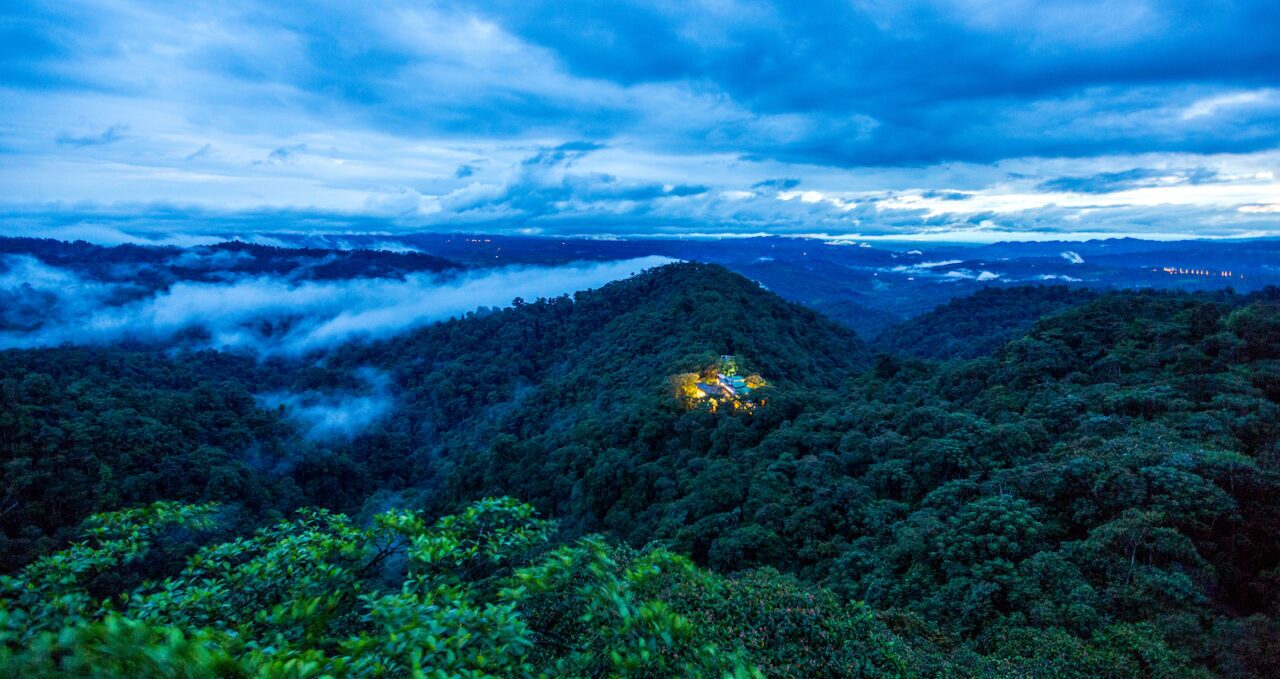
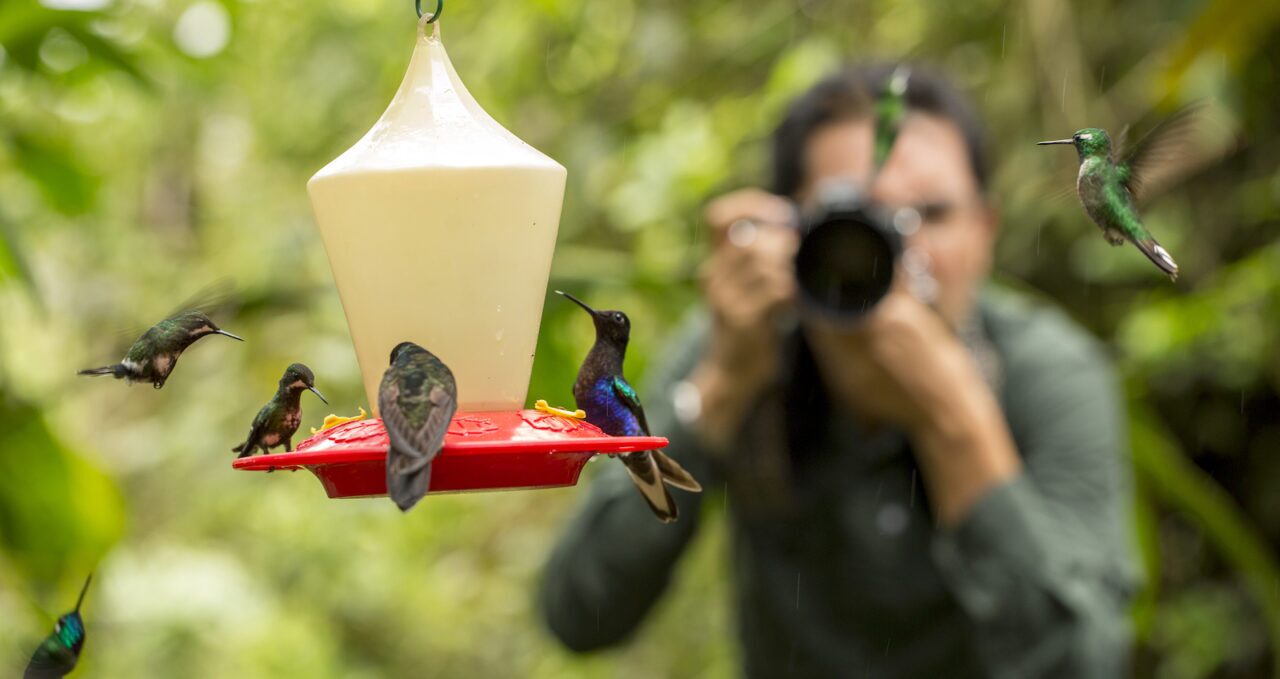
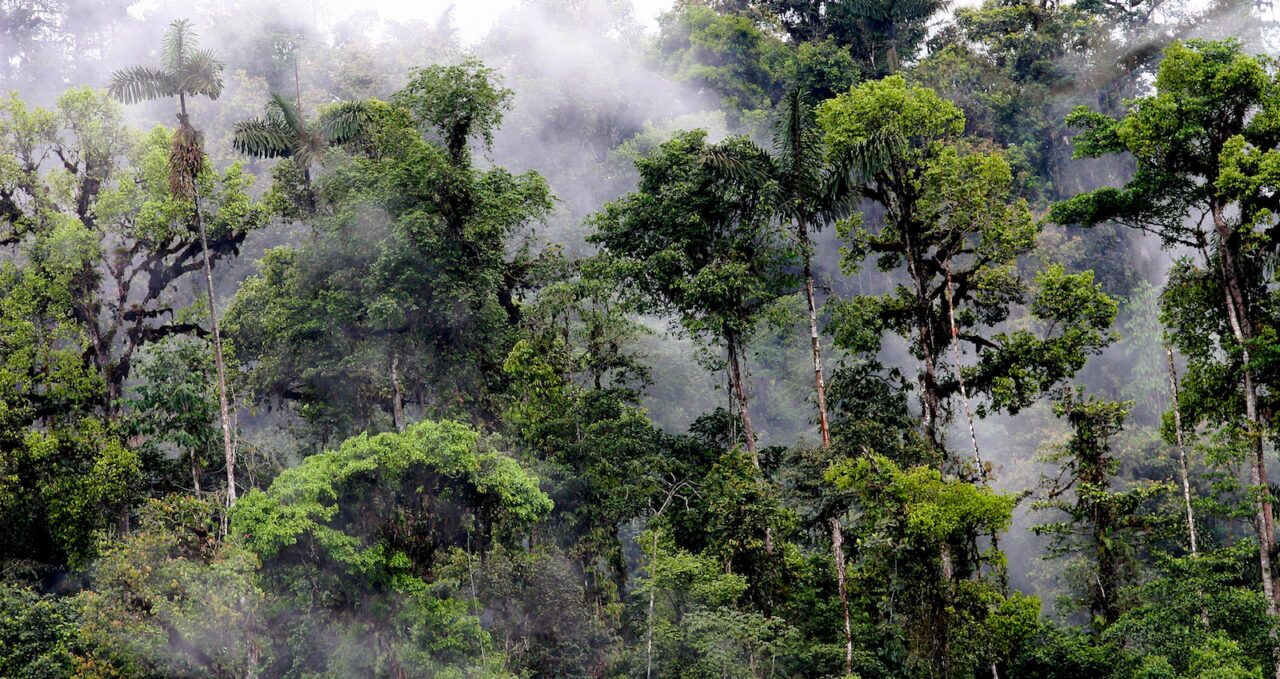
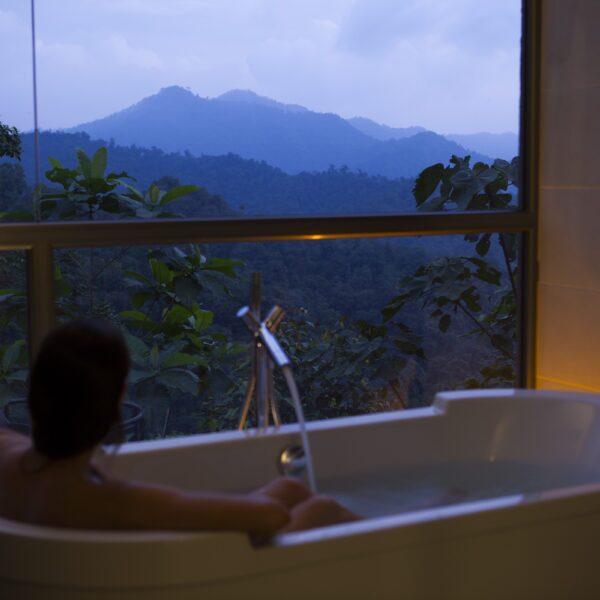
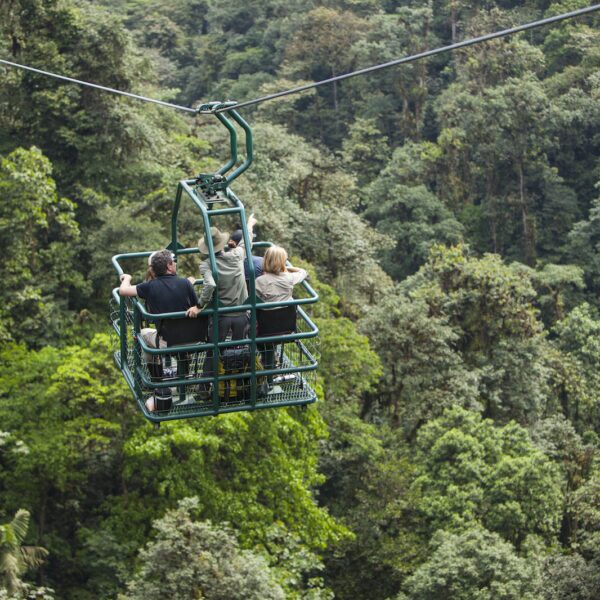
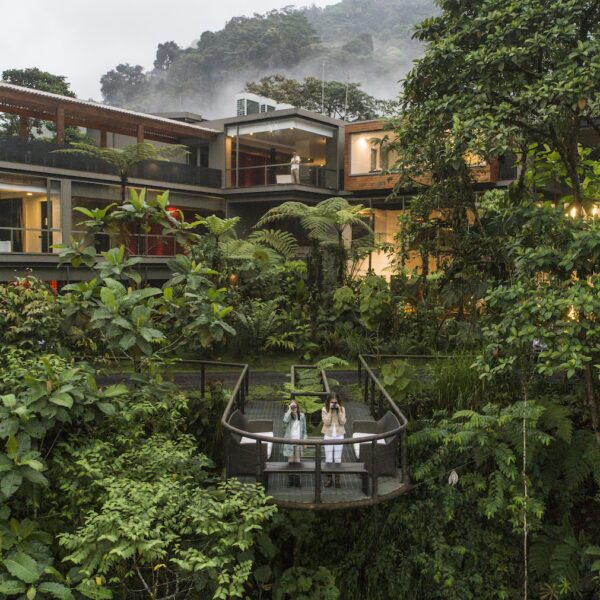
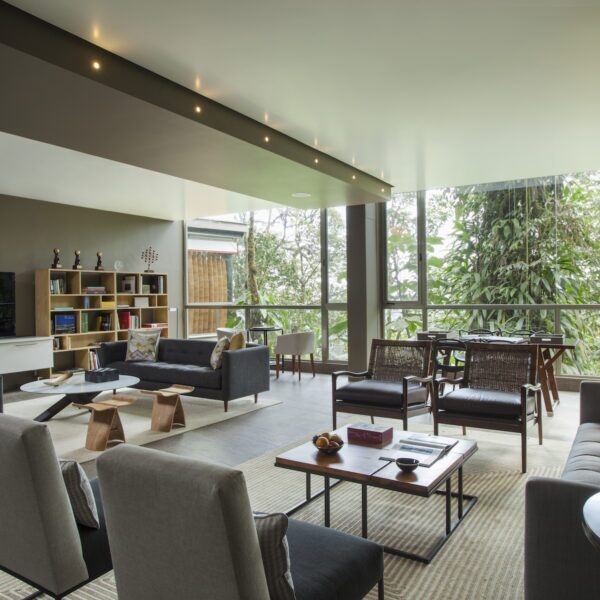
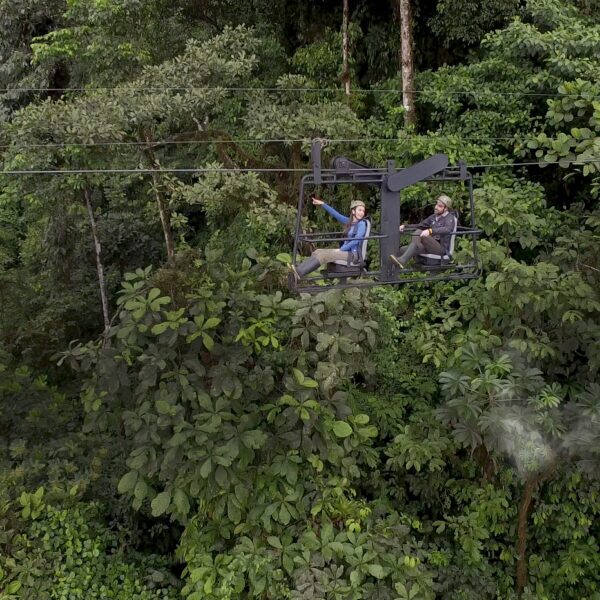
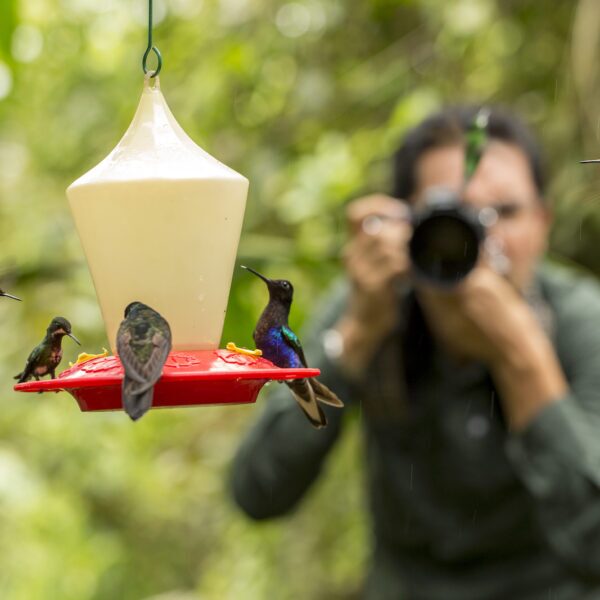
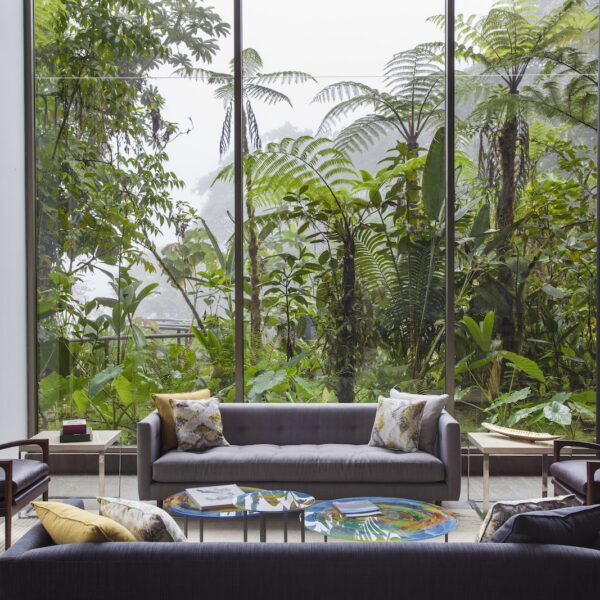
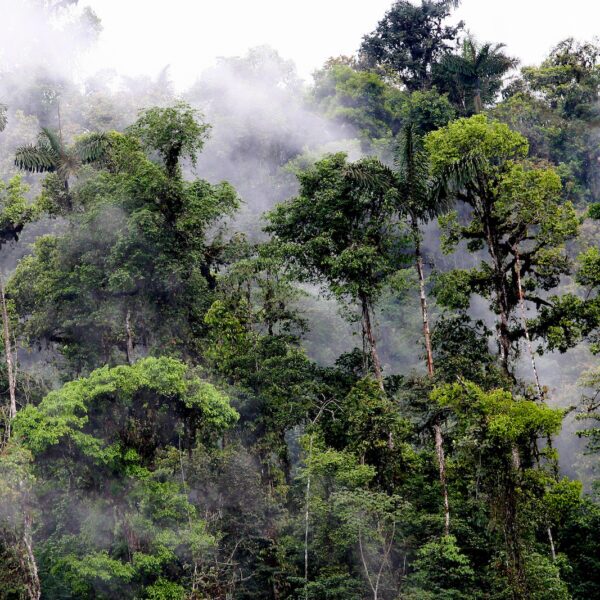
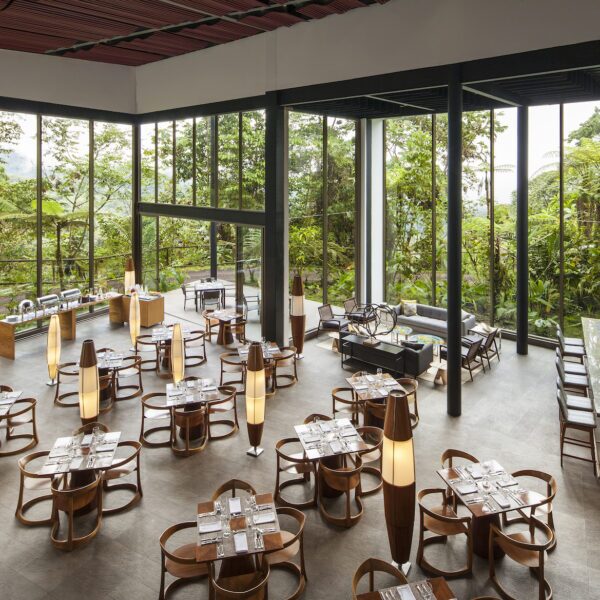
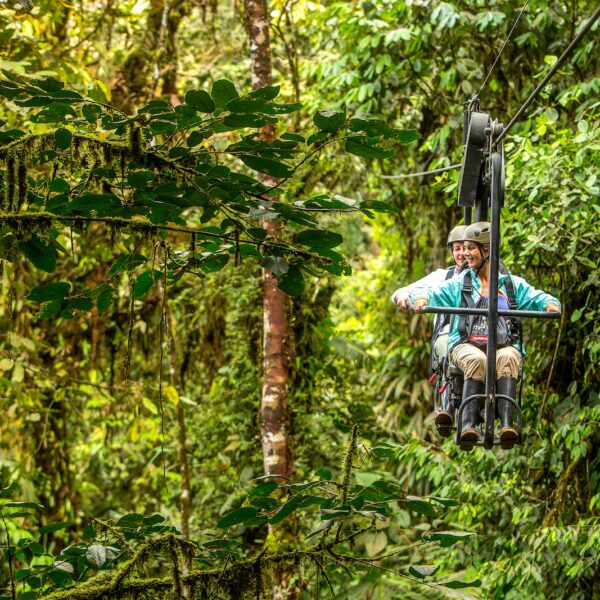
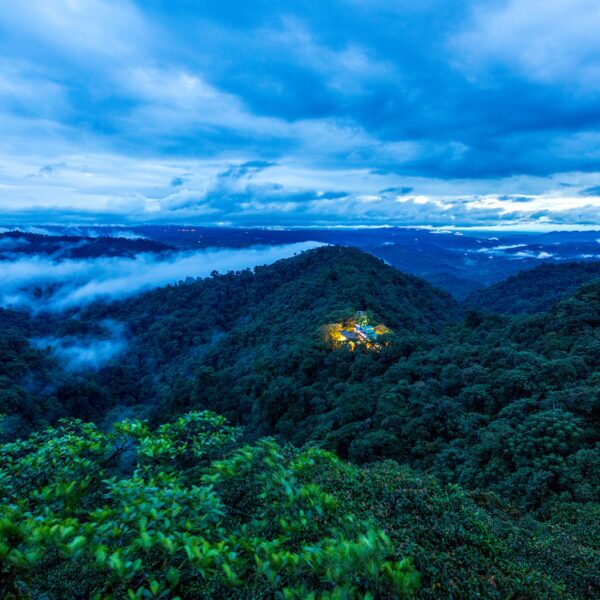
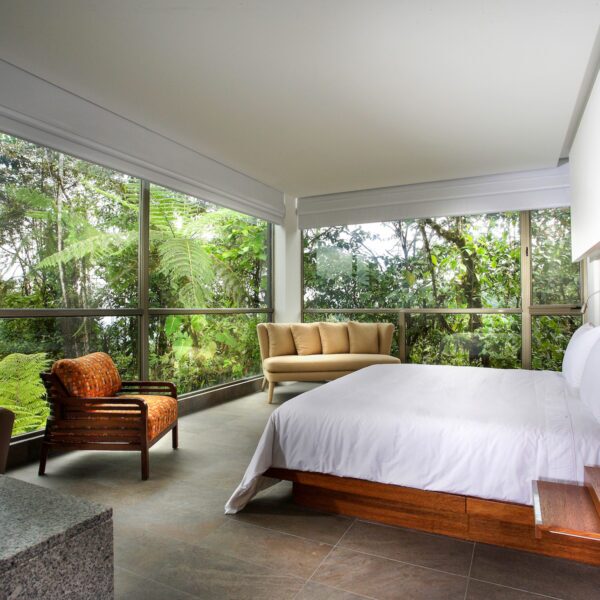
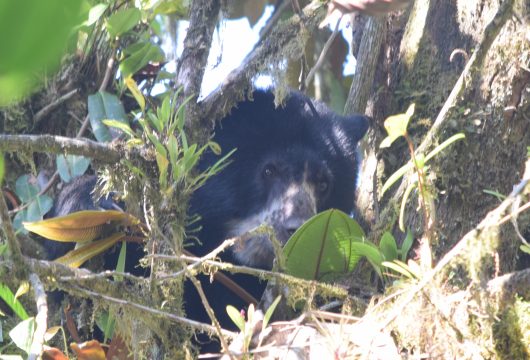
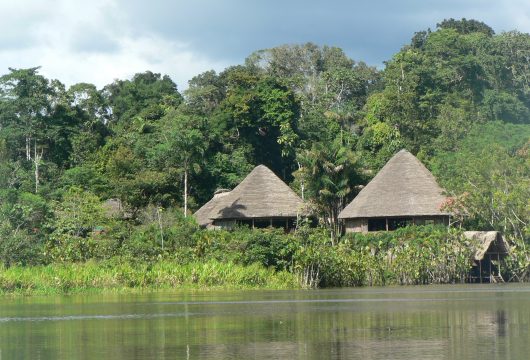
 a Group Tour
a Group Tour  a Tailor Made Tour
a Tailor Made Tour 